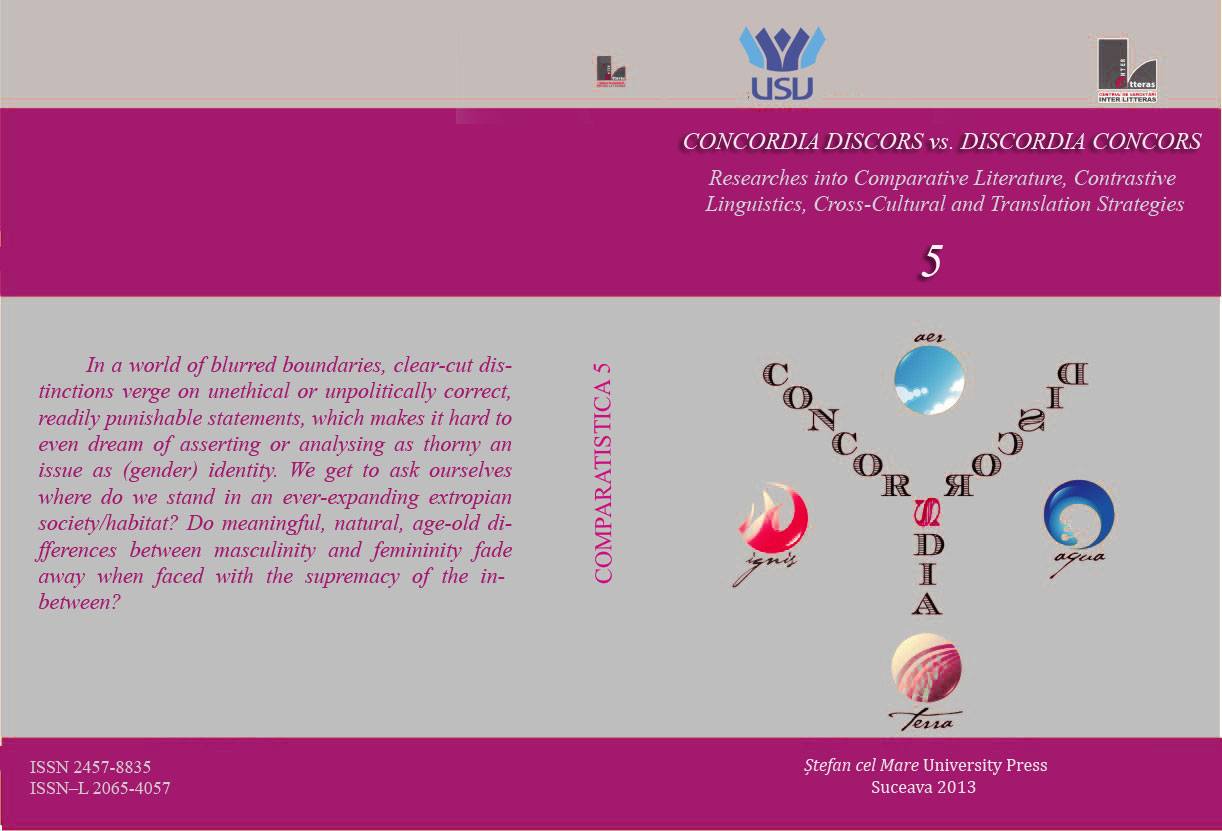Catalina Guzmán de Ascencio o el conflicto de lealtades: entre el machismo, el malinchismo y el feminismo
Catalina Guzmán de Ascencio or the Perfect Case of Conflicting Loyalties to: Machism, Malinchism and Feminism
Author(s): Lavinia IenceanuSubject(s): Philosophy, Language and Literature Studies, Philosophical Traditions, Hermeneutics
Published by: UNIVERSITATEA »ȘTEFAN CEL MARE« SUCEAVA
Keywords: identitary (re)construction; (self)destruction; femininity; Feminism; Malinchism; Machiavellianism; Electra’s complex;
Summary/Abstract: The present contribution proposes a hermeneutically- andsocioanthropologically-based approach to Catalina Guzmán de Ascencio’sascent in a men’s world, as depicted by Ángeles Mastretta in the novelArráncame la vida (1985). In order to successfully make out the inner workingsof the protagonist’s developing identity, we seek to analyze more closely thedriving force behind the adultery committed, and, in so doing, we hope to pindown the axiological tenets of feminine behaviour, more specifically, to traceher ontogenetic evolution back to its fons et origo, with a view to capturing thepsychological profile of this very young Mexican adulteress by zooming in onseveral phases of her search for a new identity, or patterns followed inconstructing her femininity. Thus, her growing awareness of the power residingin this femininity, which, as she matures, makes for her conversion from victiminto victimizer, from the perfect ingénue into Mrs. Ingenuity, from a humbleimitator into a fierce combatant, or from a rather dependent and self-effacinggirl into a fairly independent and self-assertive woman, adduces supportingevidence for our claim that facing us is the perfect case of constructing thefeminine identity at the expense of the masculine alterity, or, worse even, bymore or less abruptly destroying one’s inner self. In the light of the above,while upsetting tradition, general Ascencio’s highly atypical spouse can beviewed as in fact setting up a new typology in the literary genre documented,since, even if a genuine representative of Feminism still very much in itsinfancy, she did after all revolutionize the spirit of that epoch. Finally, bybringing allegory to bear on the interpretation of this novel, we venture to construe Catalina Guzmán de Ascencio as an epitome of the Mexican lifephilosophy in particular, and, by extension, of the spiritual HispanoAmericanicity at its ripest, and last but not least, as a personification of thedecolonized “Motherland” as well as a feminine symbol of the fate of HispanicAmerica at large.
- Issue Year: 2013
- Issue No: 5
- Page Range: 43-82
- Page Count: 40
- Language: English

